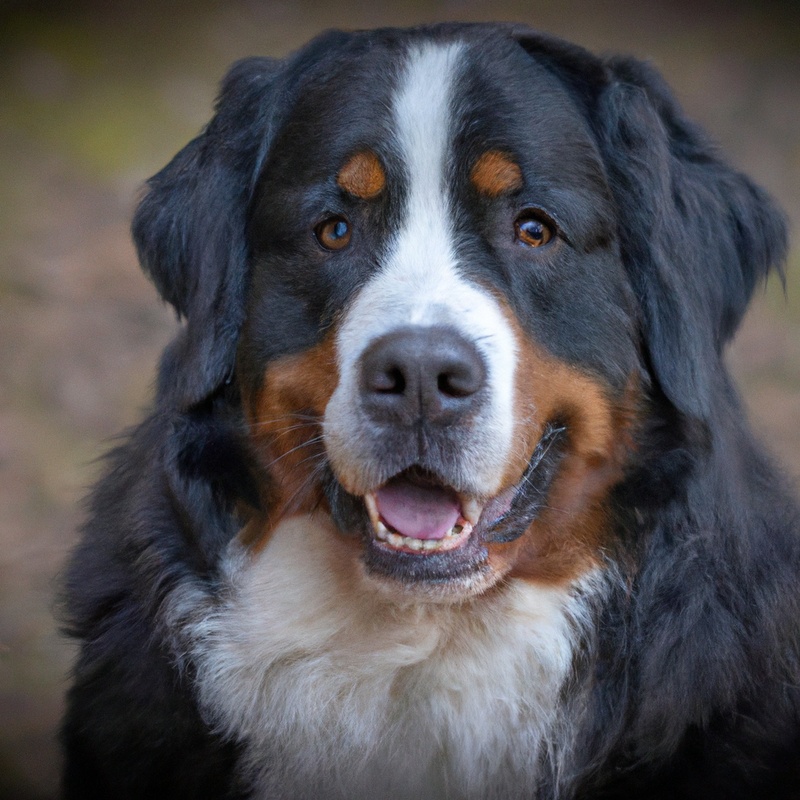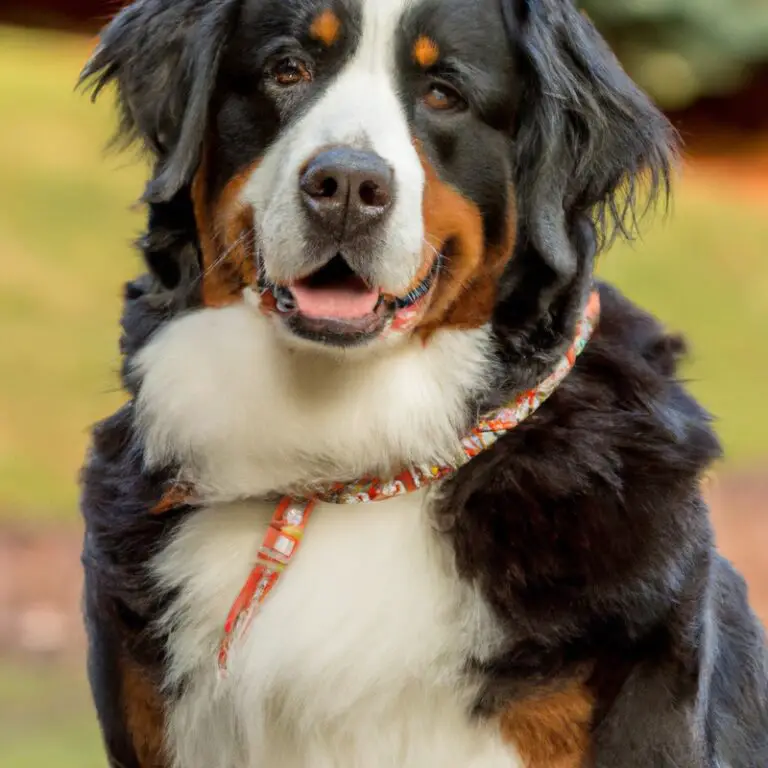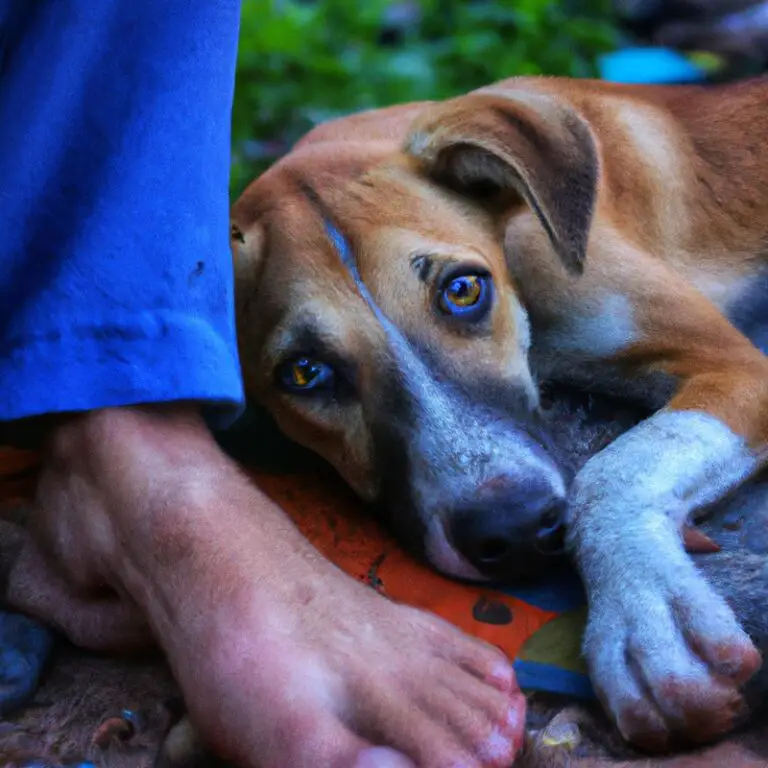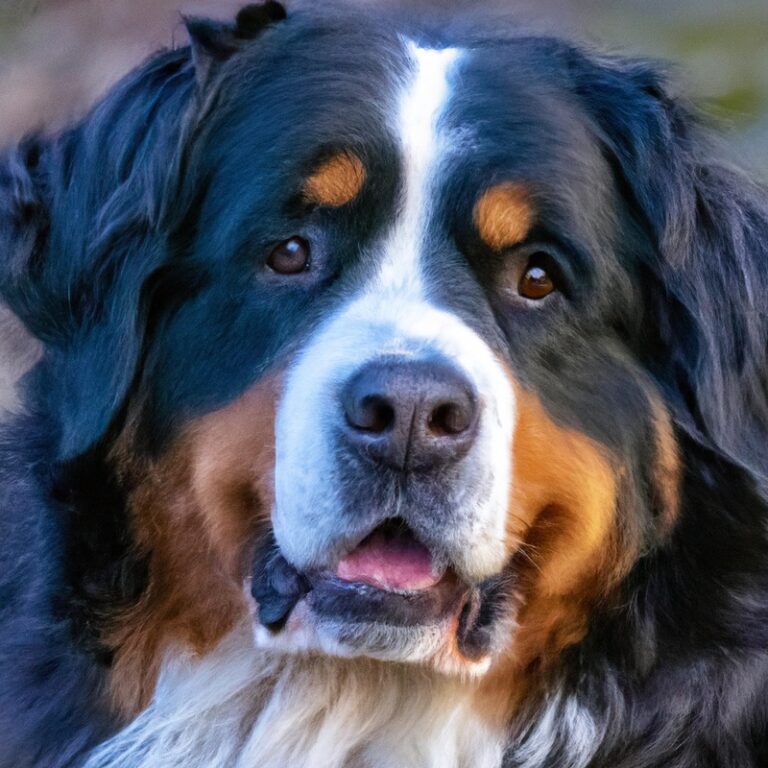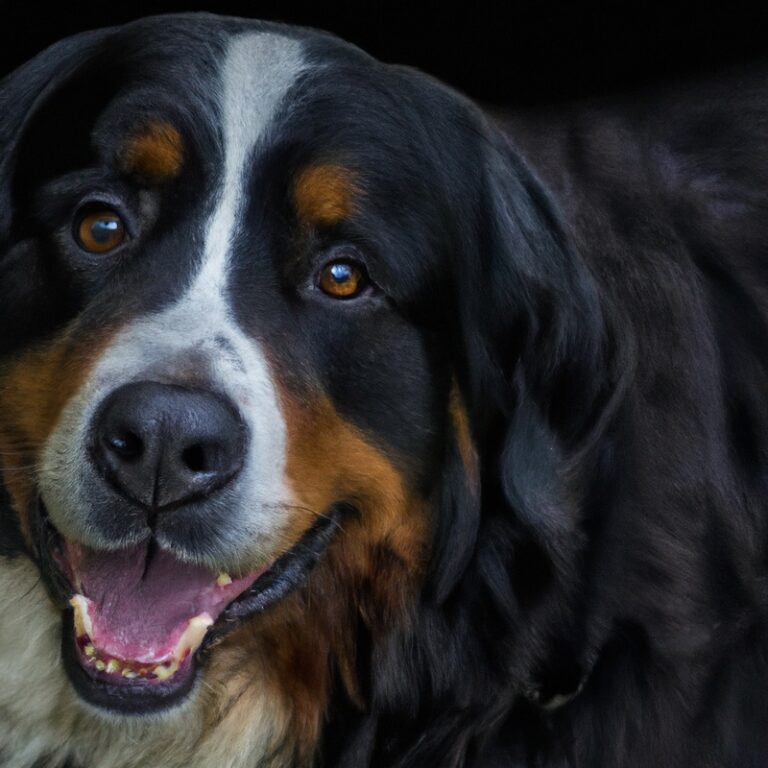How Do I Make Sure My Bernese Mountain Dog Gets Along With Other Dogs?
Key Takeaways:
- Proper socialization from a young age is crucial to ensure your Bernese Mountain Dog gets along well with other dogs.
- Positive reinforcement training methods can encourage positive interactions and help prevent aggression towards other dogs.
- Providing regular exercise and mental stimulation can help prevent behavioral issues and promote positive social behavior.
- Supervision and controlled introductions are important when introducing your Bernese Mountain Dog to unfamiliar dogs to ensure a positive and safe interaction.
Picture this: a joyful and harmonious dog park, filled with playful canines happily frolicking together.
As a proud Bernese Mountain Dog owner, wouldn’t you love to see your furry friend basking in the company of other dogs?
Socializing your Bernese Mountain Dog is not only essential for their overall well-being but also crucial for fostering positive interactions with their fellow furry pals.
In this blog post, I will share valuable tips and insights on how to ensure that your Bernese Mountain Dog becomes a social butterfly in the canine world.
So, let’s dive in and explore the exciting world of doggy socialization!
| Tips for Ensuring Good Relationships with Other Dogs |
|---|
| 1. Socialization: Introduce your Bernese Mountain Dog to other dogs from a young age in controlled environments. |
| 2. Positive Reinforcement: Reward your dog for calm and friendly behavior around other dogs. |
| 3. Training: Teach your dog basic obedience commands like “sit” and “stay” to maintain control in social situations. |
| 4. Supervised Interactions: Monitor interactions between your dog and other dogs to prevent any negative behaviors. |
| 5. Exercise: Regular exercise helps keep your dog mentally and physically stimulated, reducing the likelihood of behavioral issues. |
| 6. Avoid Triggers: Identify any triggers that may cause aggression in your dog and take steps to avoid or manage them. |
| 7. Consult a Professional: If you’re struggling to address your Bernese Mountain Dog’s behavior with other dogs, seek advice from a professional dog trainer or behaviorist. |
Importance of Socialization for Bernese Mountain Dogs
Why socializing your Bernese Mountain Dog is important
Socializing your Bernese Mountain Dog is important because it helps them develop good behavior and positive social interactions.
It allows them to become comfortable and confident in various situations, reducing the likelihood of fear or aggression towards other dogs.
Socialization also helps prevent behavioral problems and ensures your dog can enjoy a happy, healthy life.
Introducing your Bernese Mountain Dog to new people, animals, and environments from an early age will help them become well-rounded and well-adjusted companions.

Benefits of a well-socialized Bernese Mountain Dog
A well-socialized Bernese Mountain Dog can have several benefits:
- Better behavior: Socialization helps your Bernese Mountain Dog develop good manners and appropriate behavior around other dogs and people.
- Reduced anxiety: A well-socialized dog is less likely to feel anxious or fearful in new or unfamiliar situations.
- Improved confidence: Socializing your Bernese Mountain Dog from a young age can help build confidence, making them more comfortable in various environments.
- Enhanced safety: A well-socialized dog understands how to interact with others, reducing the risk of aggressive behavior or confrontations.
- Enjoyable experiences: With good socialization, your Bernese Mountain Dog can have positive interactions and enjoyable experiences with other dogs and humans.
- Strengthened bond: Socializing your dog allows you to spend quality time together, strengthening the bond between you and your Bernese Mountain Dog.
- Easier to manage: A well-socialized dog is generally easier to manage and handle in different situations, making outings and everyday activities more pleasant for both of you.
Remember, socialization is an ongoing process, so continue to expose your Bernese Mountain Dog to different environments, people, and dogs throughout their life.
Tips for Socializing Your Bernese Mountain Dog
Start early: Socializing a Bernese Mountain Dog puppy
To ensure your Bernese Mountain Dog puppy develops good social skills, start socializing them early. Expose them to various environments, people, and other animals in a positive and controlled manner.
Puppy classes and playdates can be helpful for supervised interactions.
Gradually increase their exposure while providing positive reinforcement for good behavior. Prioritize early socialization to help your Bernese Mountain Dog become a well-rounded and friendly adult companion.

Gradual exposure to other dogs
To ensure that your Bernese Mountain Dog gets along with other dogs, gradual exposure is key. Start by introducing your dog to well-socialized dogs in controlled environments, such as dog parks or training classes.
Keep the initial interactions short and positive, gradually increasing their duration over time.
Monitoring body language and providing rewards for calm behavior will help create positive associations. Remember to always prioritize the safety and comfort of your dog during these introductions.
Positive reinforcement during socialization
Positive reinforcement is key during socialization.
Reward your Bernese Mountain Dog with treats, praise, and play when they exhibit calm and friendly behavior towards other dogs.
This will reinforce positive associations and help them feel more comfortable and confident.
Start with controlled introductions, gradually exposing them to different dogs and environments.
Consistency and patience are important.
Avoid using punishment or force, as it can create fear or aggression.
Encourage positive interactions and your dog will learn to enjoy the company of other dogs.
Enroll in obedience classes or training sessions
Enrolling your Bernese Mountain Dog in obedience classes or training sessions can greatly benefit their socialization.
These programs provide structured environments for your dog to learn commands, improve their behavior, and interact with other dogs and people.
Trainers can offer guidance and expertise to help your dog navigate social situations and develop good manners.
Regular participation in obedience classes can help your Bernese Mountain Dog become more comfortable and well-behaved around other dogs.

Introducing Your Bernese Mountain Dog to Other Dogs
Choosing the right location for introductions
When introducing your Bernese Mountain Dog to other dogs, choosing the right location is key. Look for a neutral and quiet spot where both dogs can feel comfortable and relaxed.
Avoid crowded areas or places with high levels of stimulation that could intimidate or overwhelm your dog.
It’s best to start introductions in a fenced-in area to ensure safety. Gradually increase the level of interaction as both dogs become more comfortable.
Remember, a calm and controlled environment can greatly help to foster positive interactions between dogs.
Using leashes and appropriate tools for control
To ensure control and safety while introducing your Bernese Mountain Dog to other dogs, it’s important to use leashes and appropriate tools.
With a leash, you can easily manage your dog’s movements and prevent any potential confrontations.
It also allows you to maintain proximity and redirect your dog’s attention if needed.
Additionally, using tools like a head halter or harness can provide more control and prevent pulling.
These tools can help you establish clear boundaries and establish a positive and controlled interaction between your dog and other dogs.
Monitoring body language and signs of aggression
When introducing your Bernese Mountain Dog to other dogs, it’s important to closely monitor their body language and signs of aggression.
Some key things to look out for include stiff body posture, raised hackles, intense staring, and growling or snarling.
It’s also important to pay attention to subtle cues like lip licking, yawning, and paw lifting.
If you notice any signs of tension or aggression, it’s best to calmly separate the dogs and seek professional guidance to ensure a safe and positive introduction.
Allowing dogs to interact naturally and at their own pace
When allowing dogs to interact, it is important to let them do so naturally and at their own pace.
Here are a few tips for facilitating this:
- Find a neutral space for their first meeting.
- Allow them to sniff and greet each other calmly.
- Observe their body language for signs of comfort or stress.
- Avoid pulling or restraining them unless necessary.
- Provide positive reinforcement for good behavior.
- Allow breaks and separate them if either dog becomes overwhelmed or agitated.
- Gradually increase the duration and intensity of their interactions over time.
By respecting their natural instincts and allowing them to set the pace, you can help foster positive and harmonious interactions between dogs.
Common Challenges in Socializing Bernese Mountain Dogs
Fear and anxiety in Bernese Mountain Dogs
Fear and anxiety can be common issues in Bernese Mountain Dogs. It’s important to understand that every dog is unique and may have different triggers for fear or anxiety.
Some common causes can include past traumatic experiences, lack of socialization, or genetic predisposition.
Signs of fear and anxiety may include trembling, panting, hiding, or avoidance behavior. Providing a safe and secure environment, gradual exposure to new experiences, positive reinforcement training, and seeking professional help if needed can help address these issues in Bernese Mountain Dogs.
Adult Bernese Mountain Dogs and socialization challenges
Adult Bernese Mountain Dogs can face socialization challenges if not properly introduced to other dogs at a young age. This breed tends to be sensitive and can be prone to fear or anxiety in unfamiliar situations.
To help them socialize successfully, it’s important to provide positive and controlled interactions with other dogs.
Gradual exposure, supervised playdates, and obedience training can go a long way in helping adult Bernese Mountain Dogs develop good social skills. It’s important to be patient, consistent, and supportive throughout the socialization process.
Dealing with aggressive behavior towards other dogs
If your Bernese Mountain Dog is displaying aggressive behavior towards other dogs, there are a few things you can do to help address the issue:
- Socialize early: Introduce your dog to other dogs at a young age, ensuring positive experiences to build confidence.
- Gradual exposure: Instead of overwhelming your dog with a large group of dogs, introduce them to one dog at a time in a controlled environment.
- Positive reinforcement: Reward your dog with treats or praise when they exhibit calm and friendly behavior around other dogs.
- Seek professional help: If the aggressive behavior persists or worsens, consider consulting a professional dog trainer or behaviorist for guidance and additional training methods.
Remember, addressing aggression takes time and patience. With consistent effort and proper guidance, you can help your Bernese Mountain Dog become more comfortable and friendly around other dogs.
Frequently Asked Questions
How long does it take to socialize a Bernese Mountain Dog?
The time it takes to socialize a Bernese Mountain Dog can vary from dog to dog. It depends on their individual temperament, past experiences, and the effort you put into it.
Some Bernese Mountain Dogs may become comfortable around other dogs within a few weeks of consistent socialization, while others may take a few months or longer.
It’s important to be patient, persistent, and positive during the process. Consistent exposure to different people, dogs, and environments will help your Bernese Mountain Dog become well-socialized and comfortable in various situations.
Can Bernese Mountain Dogs be socialized with other pets?
Bernese Mountain Dogs can be socialized with other pets if introduced properly and given positive experiences. Start by gradually exposing your Bernese to other animals in controlled environments.
Supervised playdates and training classes can help them learn appropriate social behavior.
Use positive reinforcement, rewards, and treats to reinforce good behavior. It’s important to monitor interactions and intervene if any signs of aggression or discomfort arise.
Patience, consistency, and early socialization can help your Bernese Mountain Dog get along well with other pets.
What if my Bernese Mountain Dog doesn’t get along with other dogs?
If your Bernese Mountain Dog doesn’t get along with other dogs, it’s important to address the issue as soon as possible.
Start by socializing your dog from a young age, exposing them to different dogs and situations.
Consider enrolling in obedience classes or seeking the help of a professional trainer.
Gradual introductions with calm and friendly dogs can also help.
Provide plenty of exercise and mental stimulation to reduce any pent-up energy that may contribute to aggression or reactivity.
Remember, patience and consistency are key in helping your dog to become more comfortable and sociable with other dogs.
Final Verdict
Socializing your Bernese Mountain Dog is crucial for their overall well-being and harmony with other dogs. By starting early, gradually exposing them to different environments and positive reinforcement, you can help them become friendly and confident.
Introducing them to other dogs requires careful monitoring, appropriate tools, and allowing natural interactions.
While challenges may arise, such as fear or aggression, patience and professional guidance can address these issues. Remember, every Bernese Mountain Dog is unique, but with dedication and consistency, you can successfully socialize your furry friend and ensure they have positive interactions with other dogs.

